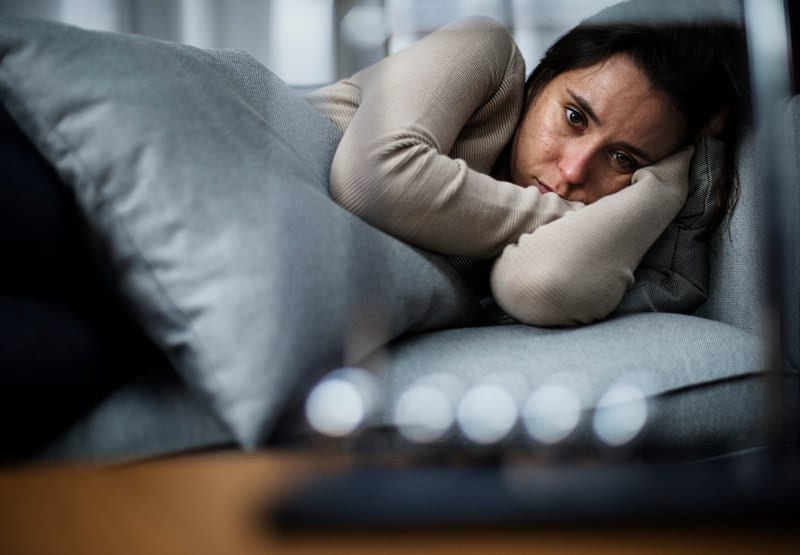Anxiety is characterized by an intense and persistent worry or fear about everyday life events. While some degree of anxiety is normal, an excessive level of anxiety induces uncomfortable symptoms that hinder day-to-day activities and also affect the self-image of the person.
While anxiety is a worldwide condition, there are steps you can take. Anxiety and depression counselling has been proven to help people suffering from anxiety. It also allows them to explore the root causes of their condition and to learn better ways to cope with anxiety-provoking situations.
What is Counselling for Anxiety?
Counselling is a therapeutic technique which is directed at reducing people’s anxiety. Counselling is sometimes also called ‘talking therapy’ that is used by a range of professionals such as psychiatrists and other medical practitioners.
Oftentimes it is rather difficult to define anxiety. However, when asked to describe their anxiety, people talk about their worries, stressors and feelings of fear. While feeling anxious is normal, in more severe cases it can alter the person’s life.
With the help of the best psychologist, counselling can improve a person’s life by reducing anxiety or stopping it altogether.
Reasons to Look into Counselling
The role of a counsellor and the effectiveness of counselling for anxiety is still not clear to everyone. What a counsellor does and how might counselling help someone with anxiety needs. To be clarified before one can take this essential step towards self-healing.
A few reasons how counselling can help you with your anxiety are:
Understand the Causes of your Anxiety
In anxiety, events are perceived as more threatening than they are. Identification of anxiety-inducing triggers is a vital first step in treating anxiety. Triggering events can be phobias, social events, financial concerns, interpersonal conflicts, performances, job stress and so on. At times, personal triggers such as smells and specific songs can also be in play.
Working with an experienced counsellor like Dr Dipti Yadav will allow you to understand what triggers your anxiety while arming you with techniques to work through those events.
Learn to Regulate Your Emotions
One symptom that people with anxiety face difficulty with is the regulation of their emotions.
Emotional regulation is the individual’s capacity to display appropriate emotions to match the needs of the situation while adapting it as necessary.
However, in the case of anxiety, the individual undergoes vast amounts of tension and stress. This constant state of high alertness results in difficulty to control emotions and reactions.
Counselling is a great way to deflate the tension in the body, which will ultimately improve emotional regulation over time.
Equip yourself with Relaxation Techniques
Anxiety creates enormous amounts of physical symptoms in the body. These symptoms may include trembling, hyperventilating, shortened breaths and so on. Learning to relax your physical symptoms and calm your mind is essential to manage anxiety levels.
Anxiety counselling will help you learn relaxation methods like meditation, mindfulness, deep breathing and muscle relaxation techniques that will help in the stabilization and regulation of physical symptoms.
Get the Load off your Mind
Therapy is effective for anxiety as it provides the person with a platform to communicate feelings and thoughts.
Counselling becomes a safe space where one can share a part of themselves and feel better through the simple act of sharing.
A counsellor will often be with accompany the individual in this journey to help identify and tackle worries and fears.
Counselling Gives New Perspectives
In most cases, anxiety is the product of negativity and faulty thought patterns that are based on our personal views that are sometimes not real.
Therapy may assist you identify these detrimental patterns of thought and change them with more positive ones. Counselling can also help you become more aware of how anxiety manifests in your body and teach you how to utilise your body as an instrument to help reduce anxiety.
Once you’ve identified the thoughts that contribute to your anxiety. A counsellor can assist you in gaining a fresh viewpoint and turning negative thoughts into more positive ones. When faced with an anxious situation, you can use this tool to adjust the conversation so that it is close to reality.
Final Words
Millions of people suffer from anxiety and related mental health disorders. However, in such difficult times, it is important to know that you are not alone and help is always there.
Working with the best psychologists near you will help you understand your condition and more importantly, practical ways to help alleviate the symptoms. With a well-planned intervention and positive lifestyle changes, you can enjoy your life without the restrictions of anxiety!
About the Author
Dr Dipti Yadav is a counselling specialist and an experienced psychologist who works with individuals to improve the quality of their lives through therapeutic interventions. In her illustrious career, she has successfully assisted countless individuals in recovering from mental health issues such as depression and anxiety, among other mental health disorders.


